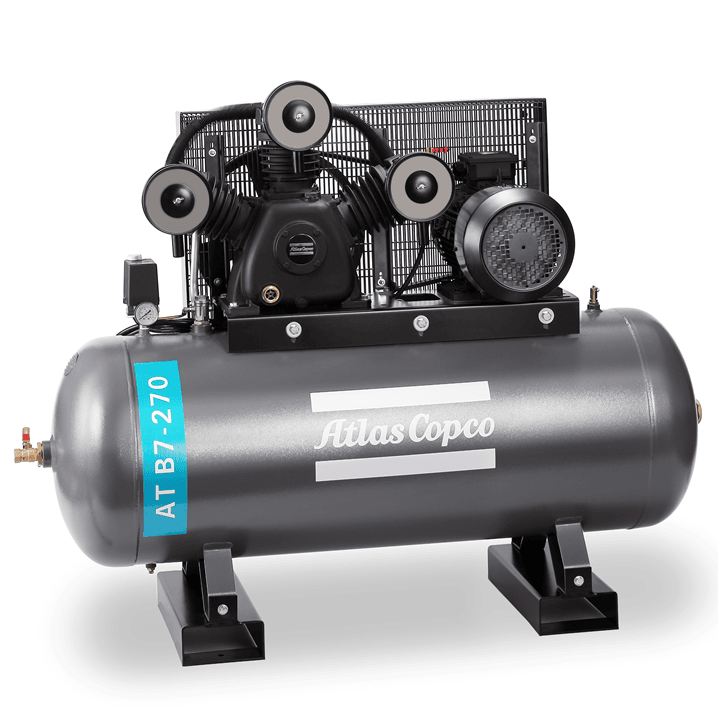- Call us Today : +8801933355329
- Email : info@microairbd.com
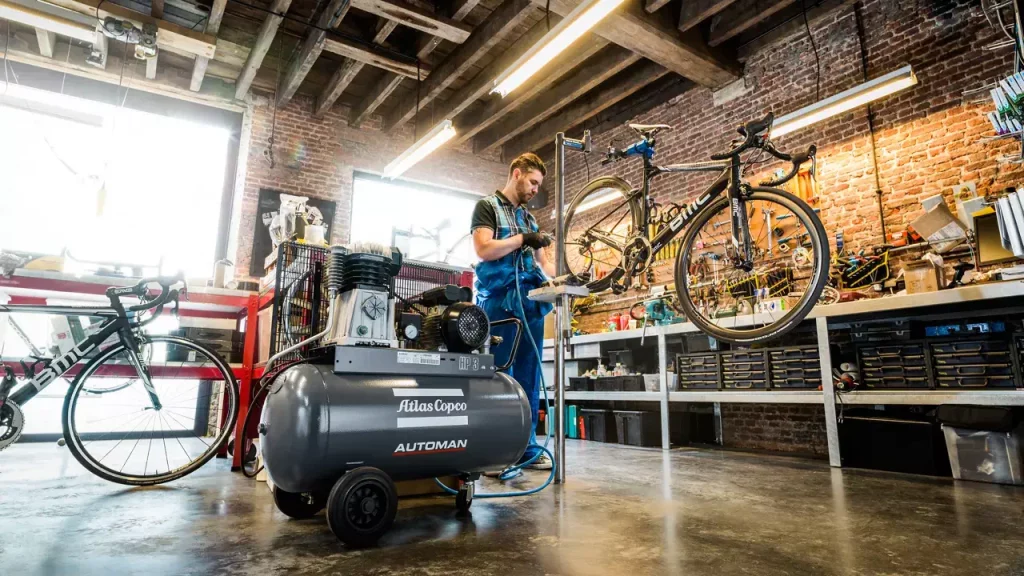
Piston Compressors
Explore our complete range of piston air compressors for every application and benefit from our team’s knowledge in setting up your compressor installation.
We sell piston compressors for every application
Our piston air compressor range is designed to deliver a reliable source of compressed air for every user. Our portfolio of reciprocating piston air compressors ranges from 1.5 kW belt driven, handyman compressors to large industrial, cast iron, direct drive piston air compressor products. We also have a large range of oil-free piston air compressors for specialised requirements such as dental surgeries, laboratories, PET bottle blowing and CNG.
Why should I buy a piston compressor?
Of the most popular air compressors technologies available, the most economical and relatively inexpensive type of air compressor is the piston or reciprocating machine. It is a mistake to think of small piston compressors as tired, noisy relics clattering away in a auto-garage tyre bay. Nothing could be further away from this reality than the contribution today’s modern reciprocating compressor technology is making to industrial productivity. The majority of small-to-medium piston compressors, which commonly range from 0.55 to 15 kW and can be either oil-lubricated or oil-free machines, are available in a number of product variants to match the exact needs of a wide range of end users. They can be supplied either as standard base units, trolley or receiver mounted, or as a complete compressed air station that includes a refrigerant air dryer as well as pre-wired starting and regulation equipment. The range of larger piston compressors is usually dedicated to special applications, such as compressed natural gas usage and can go up to 560 kW.
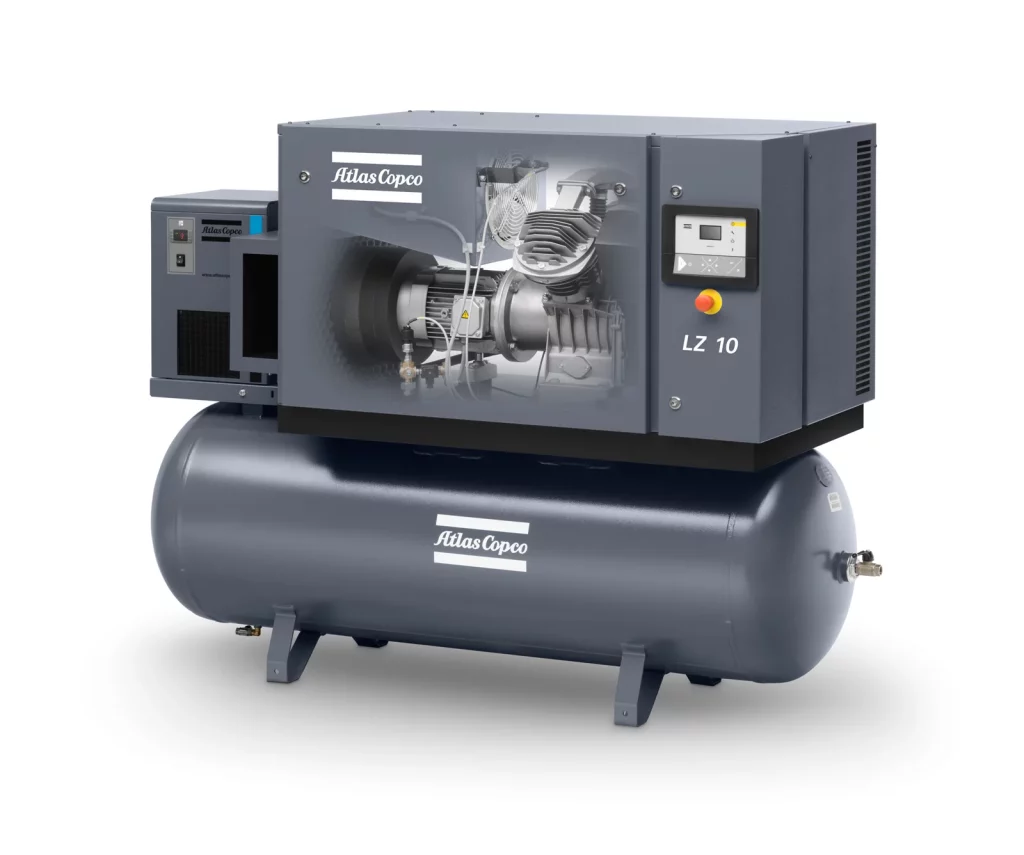
What are the advantages of buying a piston compressor?
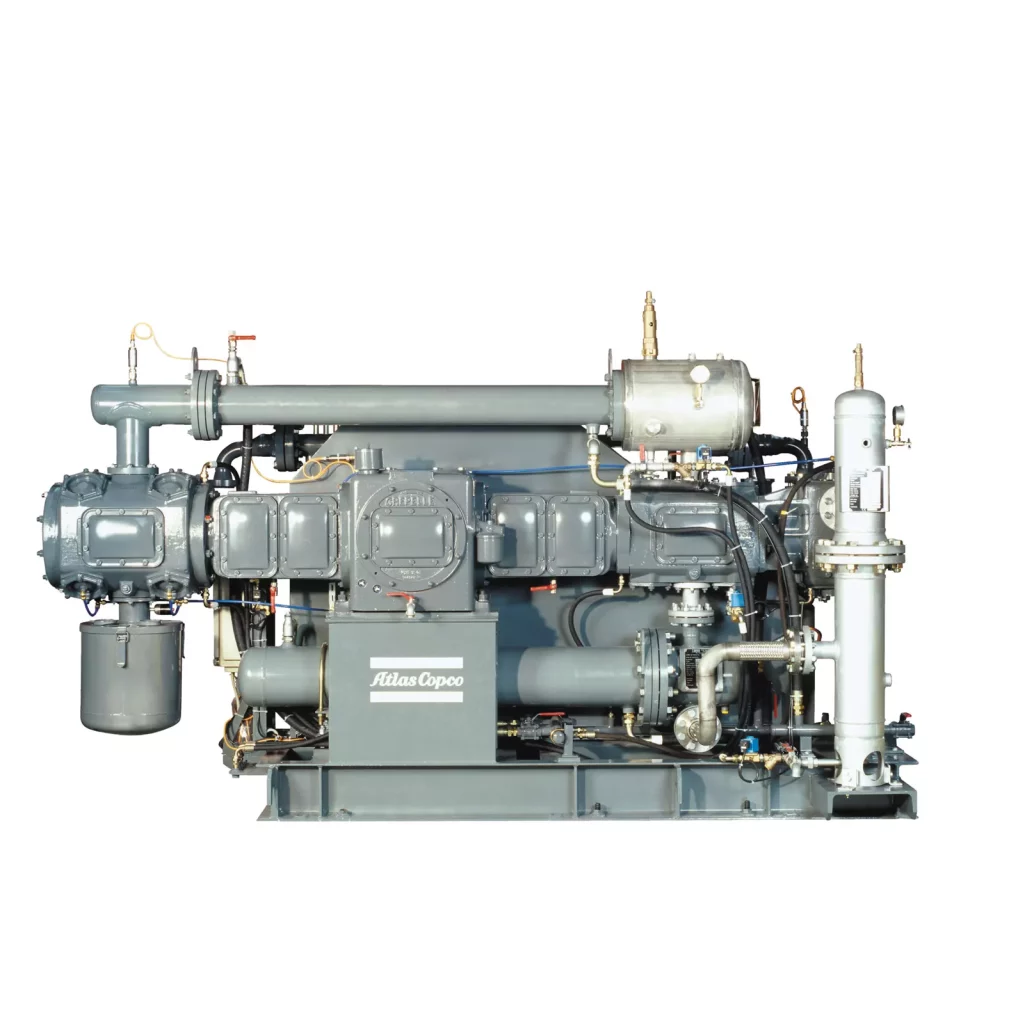
Piston technology compressors are the oldest types of compressor. They are also the simplest, using very basic physics principles to function. For these reasons, revolutionary changes and improvements in this field are unlikely. But that also means the technology is well understood by all its manufacturers, at least in its most common industrial usage.
With little to no research and development cost, as well as simple and well-understood technology, the cost of production is lower. That means a wider range of manufacturers are willing to take on the product or license it under their own label. As such, the buyer benefits from a competitive market which makes for a lower cost of purchase.
Maintenance technicians are easier to find (and cheaper)
The age and simplicity of the technology, as well as the research plateau, impacts maintenance in the same way it affects production. For its most common industrial usage, there is no continuous learning process to stay on top of changes in piston compressors. Once a technician understands the basic principles, their skills can only improve. This means piston compressor maintenance is easier to master because the technology is accessible to any technician.
What does this mean for you, as a buyer? First of all, you have access to a larger pool of technicians experienced in this technology. Most of the time, the competitive nature of this pool of resources also means a lower cost of maintenance.
Exceptions apply in the case of specialised applications, such as the compression of natural gas, nitrogen or oxygen. However, the cost comes from the demands of the industry application, rather than the technology itself.
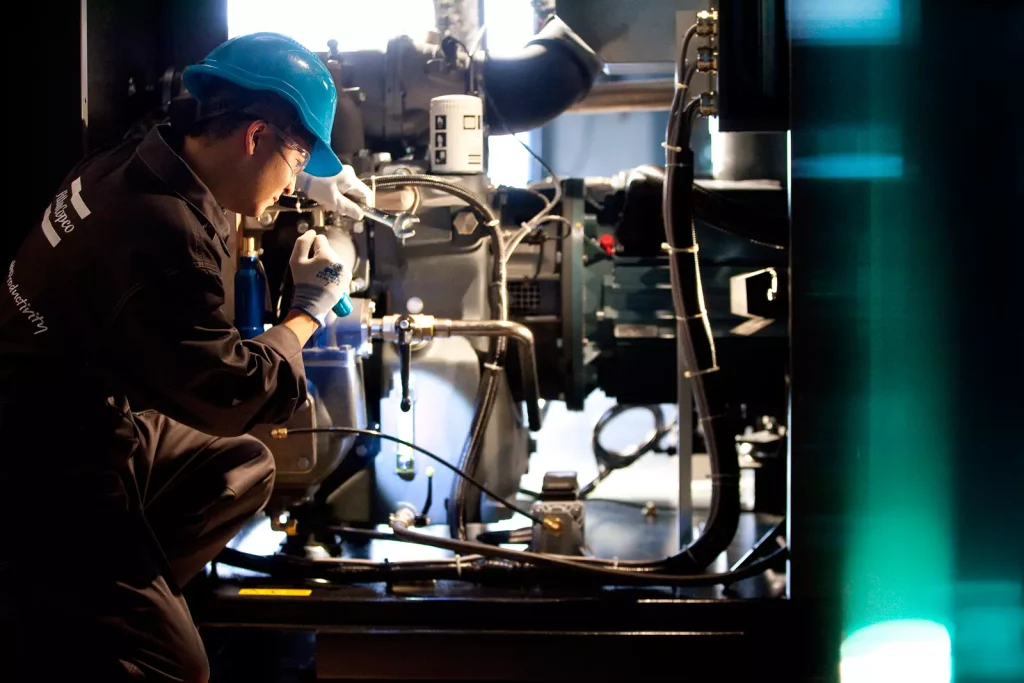
Piston compressor spare parts are readily available
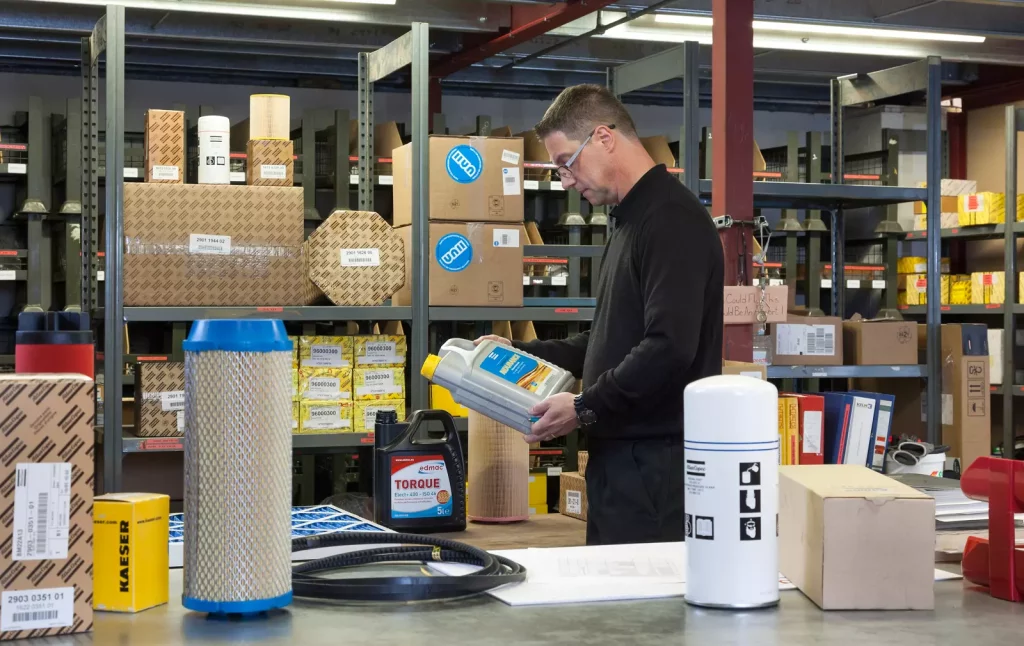
The availability of spare parts goes hand in hand with the maintenance of your piston compressor. Simple technology results in a high availability of spare parts and maintenance kits. This is especially relevant in light of the many compressors produced under private labels by the same manufacturer.
For the everyday hobbyist compressor spares, the buying alternatives are as varied as there are ways to buy the compressor itself. You can speak with authorised dealers, you can visit your nearest DIY shop, or go for e-commerce sites. Whichever you choose, chances are high that you will find all the spare parts your compressor needs. Or you will find suitable alternatives with the help of the online community.
Again, certain industry applications do not follow this tendency. But the needs of a compressor which handles tyre inflation and pneumatic tools in a auto garage are one thing. The needs of a compressor working in explosive atmospheres are another thing entirely. For the latter, the risk factor that these spares and maintenance kits need to mitigate affects availability.
What are the disadvantages of buying a piston compressor?
Piston compressors are loud
Many of the businesses where a piston compressor is ideal have small premises, which makes noise a major concern. Noise levels on a reciprocating compressor can be as low as 65 dB in the case of recent, upper end machines. But the most common piston compressors, especially old ones, will hover at 80 dB and above.
It is important to remember that the principal focus of reciprocating technology is a low investment cost. Managing the side effects such as noise and heat are not as high up on the list of priorities. By comparison, rotary screw compressors cut or drastically reduce these side-effects.
As a result, considering a piston compressor also requires mitigating the noise problem. The most common solution is to place the machine outside of the workplace, in a good sound-proofing enclosure. Spending a bit more money at the outset can buy an upper end compressor. Designed to modern standards, the noise levels of such machines allow placing them closer to the point of use.

Address
82 Nawabpur Road
Shajalal Market

